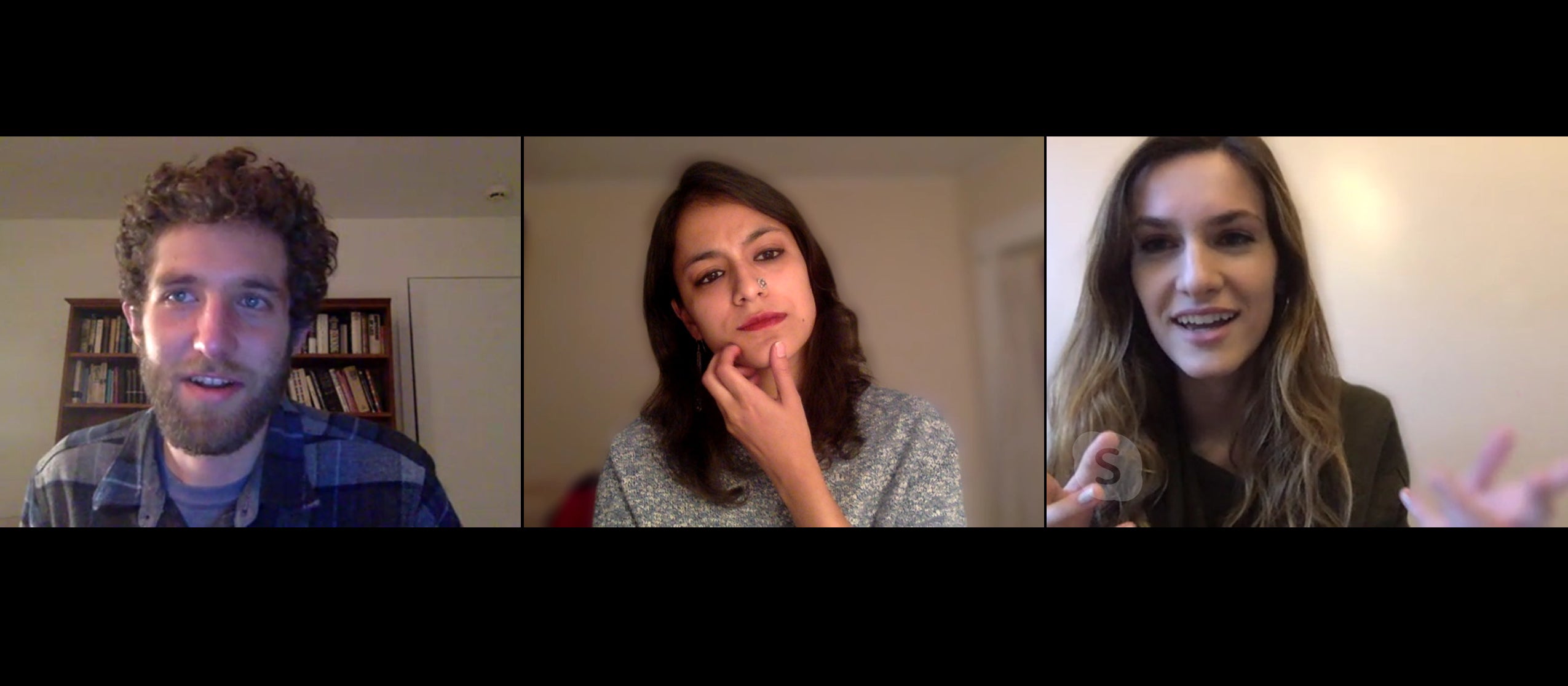Deftly adapting to a shift in both venue and format, and applying the skills that they had cultivated in their J-Term negotiation workshop, Harvard Law 1L students Adira E. Levine, Noopur Sen, and Adam J. Toobin were able to negotiate their way to victory in The Negotiation Challenge—an international contest drawing competitors from around the world.
The trio was awarded both the overall first place award as well as the Best Negotiation Style award.
While they were excited to win, all agreed that sharing that news with the law school community who had supported them along the way was one of the best parts of the experience.
“Communicating the news to the people who taught us in the negotiation workshop, the Program on Negotiation, Dean Sells, and all of the different people who had supported us so much … seemed to bring such joy,” said Sen. “I feel very gratified and humbled to be able to provide some sunshine in this otherwise crazy time.”
The competition was originally scheduled to take place in Barcelona in early April, but the COVID-19 pandemic necessitated a shift to an entirely online format. With so many different time zones to account for among the competing institutions, the Harvard Law team had to participate in two of the rounds between midnight and 3 am. Competing three-on-three against their competitors in negotiation simulations, the trio from Harvard Law needed to adapt their skills to a new technological sphere to meet the challenge of negotiating over video conference.
And although they had all participated in the January workshop, they had not worked together during that experience. Working on the same team for the first time, they had the added challenge of not being in the room together. While the experience was not the one that they had planned on, any challenges that did come up, they overcame together, through open communication, and honest reflection after each round.
For Levine, that’s where she saw the impact of the negotiation workshop.
“It really shone through in the way we prepared and debriefed after rounds,” she said. “And we were able to tweak things as a result, using frameworks that we had learned from the workshop.”
All three students credited the J-Term workshop for giving them the knowledge to compete in such a formidable competition and insights they put into practice every day.
“One of the most interesting pieces of negotiation training that we did in the workshop was to record our negotiations,” Toobin said. “What you’re asked to notice, is how are you responding to questions and to be more conscious of the fact that you send as many signals nonverbally as you do verbally.”
“What’s amazing about that workshop is that it’s only two weeks, but you do feel like you walked away with a pretty concrete set of skills that is immediately applicable and useful in your everyday life,” said Sen. “It’s just easier to have more effective, more thoughtful conversations and negotiations.”
At the same time that the remote format had its challenges, the students found the chance to connect with others from around the world to be surprisingly moving.
“This pandemic has made the world in a lot of ways feel smaller and less connected,” said Levin. Being “transported” across the globe to meet people and interact with them “made the whole experience of going through this pandemic feel a little less isolating.”
